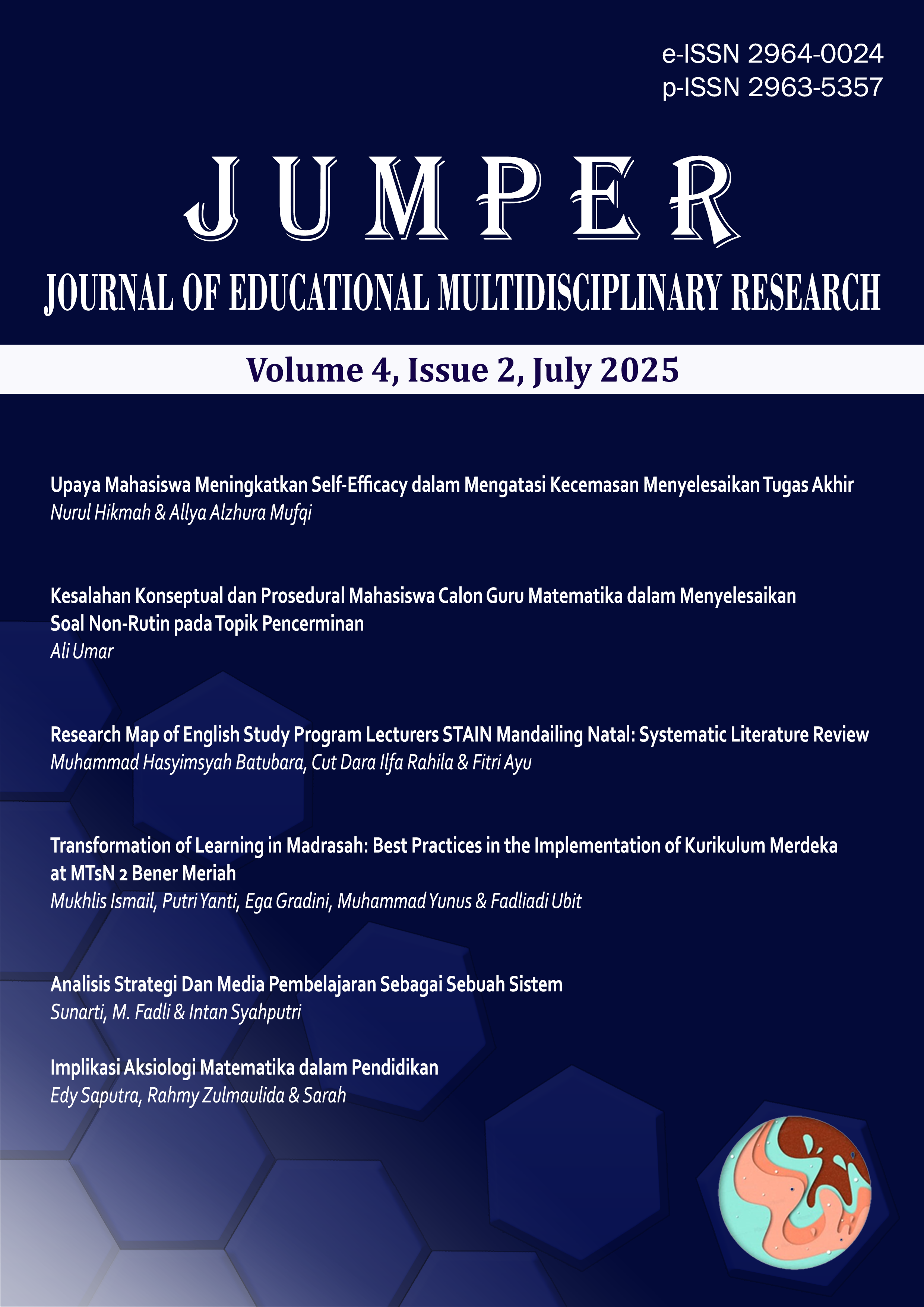Upaya Mahasiswa Meningkatkan Self-Efficacy dalam Mengatasi Kecemasan Menyelesaikan Tugas Akhir
DOI:
https://doi.org/10.56921/jumper.v4i2.290Keywords:
Effort; , Self-efficacy; , Anxiety; , Final-year StudentsAbstract
Students who are working on their final thesis tend to experience anxiety; as the final project is considered a determinant of graduation within a limited timeframe. Concerns about not being able to complete the thesis on time, limited references, and fear of criticism from lecturers can increase anxiety among students. The level of anxiety felt also varies. One essential skill that final-year students must have to manage anxiety is maintaining a strong belief in their ability to accomplish tasks, this belief is known as self-efficacy. The higher a student’s level of self-efficacy, the lower their level of anxiety will be. This study aims to analyze the anxiety experienced by students and the efforts that can be made to improve self-efficacy. The research uses a descriptive qualitative method with six respondents selected through purposive sampling. Data were collected through observation, interviews, and documentation. The results of the study show that final-year students experience symptoms of anxiety such as sleep disorders, eating disorders, nausea, dizziness, rapid heartbeat, emotional instability, negative thoughts, overthinking, lack of motivation, and procrastination. Efforts that can be made to increase students’ self-efficacy in overcoming the anxiety of completing their thesis include: recalling past successful experiences, managing emotions effectively, maintaining motivation, observing the success of peers, and increasing worship to Allah SWT to gain inner peace.
Downloads
Published
How to Cite
Issue
Section
License
Copyright (c) 2025 Nurul Hikmah, Allya Alzhura Mufqi

This work is licensed under a Creative Commons Attribution-ShareAlike 4.0 International License.














